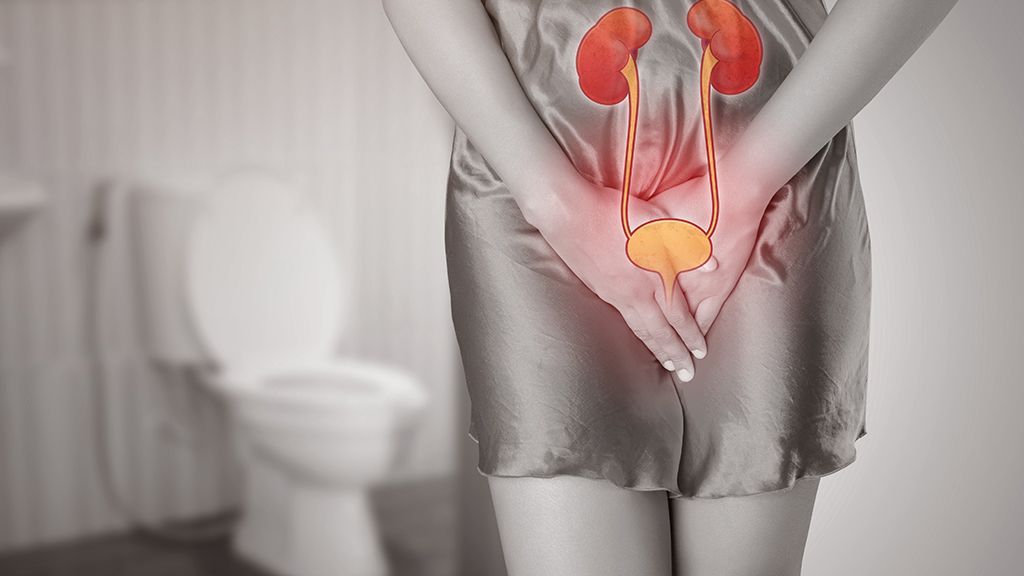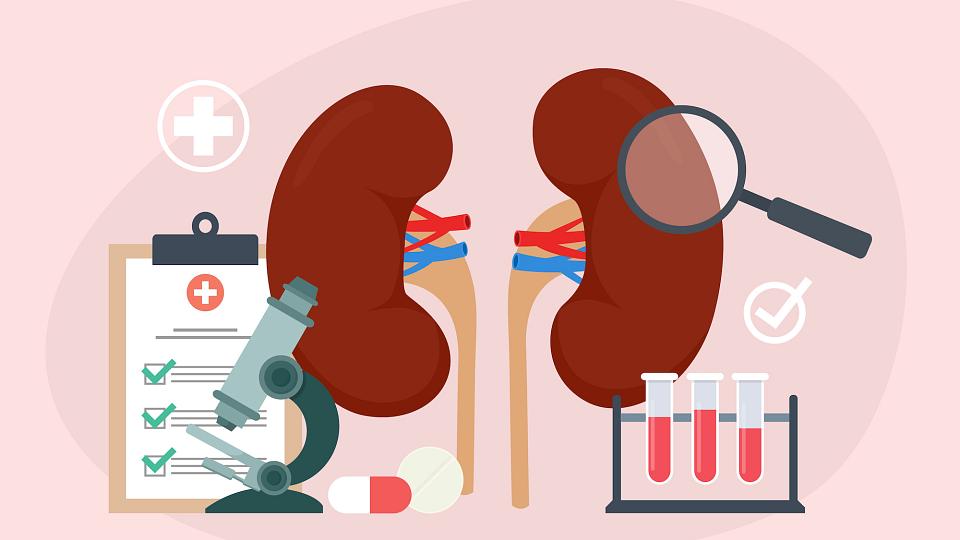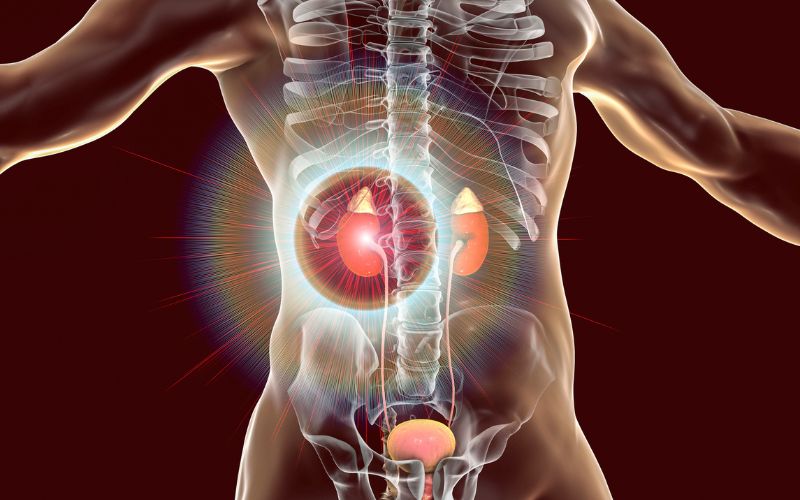Urinary Fistula in Female: Causes, Symptoms, and Treatment at Top Hospital in Haryana
Urinary fistula is a surgical condition that affects the urinary system, causing abnormal connections between the urinary tract and nearby organs. In this article, a Leading urologist in Haryana from SS Kidney and Urology Hospital discusses the causes, symptoms, and treatment for urinary fistula in Haryana in detail.
What is Urinary Fistula?
Urinary fistula refers to an abnormal opening or passageway between the urinary tract and other structures, such as the vagina or rectum. This opening lead to the leakage of urine into places where it shouldn't be, causing a range of problems.
Types of Urinary Fistula:
-
Vesicovaginal Fistula (VVF): A connection between the bladder and the vagina enabling the direct exchange of urine between the bladder and vagina.
-
Urethrovaginal Fistula (UVF): An abnormal opening between the urethra and the vagina. The urethra, responsible for transporting urine from the bladder to the outside of the body, and the vagina, a separate entity with distinct functions, gets linked.
-
Rectovaginal Fistula (RVF): Rectovaginal Fistula (RVF) involves an abnormal connection between the rectum and vagina. This unintended passageway disrupts linings between these two structures, leading to the interchange of substances that should remain isolated.
-
Urinary Incontinence: At the forefront of symptoms is urinary incontinence, a condition where individuals lose control over the release of urine. This may manifest as continuous leakage or intermittent spurts, leading to a pervasive sense of discomfort and embarrassment.
-
Foul-Smelling Urine: The abnormal connections created by urinary fistula provide a direct path for bacteria to enter the urinary tract. This bacterial presence can result in the development of foul-smelling urine
-
Recurrent Urinary Tract Infections (UTIs): The unintended communication between the urinary tract and neighboring structures facilitates the infiltration of bacteria into the urinary system. This lead to recurrent urinary tract infections, a cyclical pattern of inflammation and discomfort.
-
Pain or Discomfort: Individuals with urinary fistula may experience pain or discomfort, especially during activities such as urination or sexual intercourse. This discomfort stems from the abnormal flow of urine and its impact on surrounding tissues.
-
Skin Irritation: Constant exposure to urine due to uncontrolled leakage can lead to skin irritation and redness. The skin around the genital area becomes vulnerable to the corrosive effects of urine, adding another layer of discomfort to the individual's experience.
-
Emotional Impact: Beyond the physical symptoms, urinary fistula carries a substantial emotional burden. The loss of urinary control and the associated symptoms can contribute to feelings of shame, isolation, and a diminished quality of life.
-
Surgical Repair: Urinary Fistula surgery involves rectifying the abnormal connection between the urinary tract and adjacent structures. Urology Surgeon close the unintended pathways, reestablishing the natural boundaries that should govern urinary function.
-
Preoperative Care: This needs addressing nutritional deficiencies to fortify the body and tackling existing infections that could complicate the surgical process.
-
Postoperative Care: Patients are advised pelvic rest, steering clear of activities that could slowdown the delicate repair.
-
Catheterization: Catheterization is used to divert the flow of urine away from the recently repaired area. This reduce stress on the healing tissues, offering them a conducive environment to mend.
-
Medicines: Medications may play a supportive role, addressing infections or managing symptoms, but they aren't the the complete solution.
-
Access to Obstetric Care: Ensuring all pregnant individuals have timely access to experienced Obs & Gynae specialist. In regions with limited medical resources, ramping up efforts to provide adequate and timely assistance during childbirth is non-negotiable.
-
Safe Surgical Practices: When surgical interventions are unavoidable, adhering to safe practices is paramount. Surgeons must exercise extreme caution during pelvic surgeries, minimizing the risk of inadvertent damage that could lead to urinary fistula formation.
-
Infection Prevention: Actively preventing and promptly treating infections is a must. Infections, particularly in the pelvic region, can pave the way for urinary fistulas. This involves hygiene measures, timely administration of antibiotics, and vigilant postoperative care.
-
Regulatory Measures: Monitoring and ensuring that surgical procedures meet established standards, leaving no room for negligence
Causes of Urinary Fistula:
Childbirth: Childbirth, can lead to urinary fistula. Prolonged or obstructed labor creates an environment of heightened stress on the pelvic region. The tissues, get stretched beyond their endurance, and succumb to the pressure, resulting in the formation of abnormal passage.
Pelvic Surgery: Pelvic surgeries, such as hysterectomy or cesarean section, inherently involve navigating the complex terrain of the pelvic region. In the process, adjacent structures may inadvertently incur damage, setting the stage for the formation of urinary fistulas.
Radiation Therapy: In the realm of cancer treatment, radiation therapy stands as a formidable weapon against malignant cells. However, this powerful tool is not without its collateral effects. Radiation, while targeting cancerous tissues, also inflict damage on surrounding healthy structures. In the pelvic region, where the urinary system resides, this damage can come as tissue erosion, leading to the creation of abnormal connections and urinary fistula formation.
Infection: Severe infections, particularly those entrenched in the pelvic region, emerge as stealthy intruders fostering the genesis of urinary fistulas. Infections exert a corrosive influence on tissues, eroding their integrity and creating avenues for abnormal connections.
Symptoms of Urinary Fistula
Urinary fistula, with its abnormal connections in the urinary tract, have following symptoms:
Diagnose
Physical Examination:
A pelvic examination is often performed to assess the condition of the pelvic organs, including the bladder and urethra. The doctor check for signs of infection, such as redness or swelling, and assess the strength and integrity of pelvic floor muscles.
Imaging Studies:
Cystoscopy: A thin tube with a camera (cystoscope) is inserted into the urethra to visualize the inside of the bladder and urethra. This helps identify any abnormalities, such as openings or passages between the bladder and nearby structures.
Voiding Cystourethrogram (VCUG): This imaging test involves injecting a contrast dye into the bladder and taking X-rays during urination. It helps evaluate the structure and function of the bladder and urethra.
Laboratory Tests:
Urinalysis: A urine sample is analyzed for the presence of blood, infection, or other abnormalities.
Urine Culture: This test is done to identify any bacterial infection in the urinary tract.
Treatment Options in Haryana
When it comes to tackling urinary fistula, the treatment is both diverse and direct, aiming to address the root cause and restore normalcy to the urinary system.
Prevention
Preventing urinary fistula demand addressing key risk factors and implementing practical measures. Here's a detailed breakdown:
Urinary fistula is a medical condition that can have profound effects on an individual's life. Understanding symptoms, and treatment options is essential for patients. While surgical repair remains the primary approach, a combination of preoperative and postoperative care plays a vital role in ensuring successful outcomes. With improved access to leading urologists, gynaecologists and specialists, adherence to safe surgical practices, and heightened awareness. Top Hospital in Haryana help in reducing the incidence of urinary fistulas and improving the overall health and well-being of individuals affected by this condition. Doctors at SS Kidney Hospital also have expertise in treating other diseases like Diabetic Nephropathy problems














Request A Callback